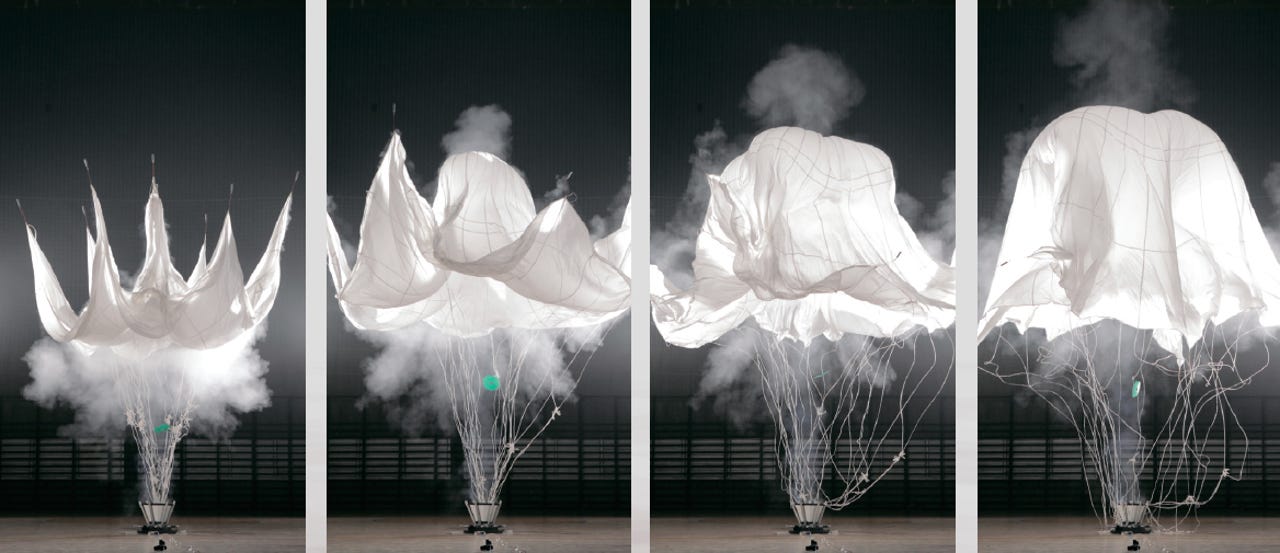Pyrotechnic parachute a proposed solution for falling commercial drones


There's a company in Israel that wants to make parachutes mandatory on commercial drones.
ParaZero developed the first fully autonomous safety suite for drones, which includes a parachute. The system relies on emergency decision algorithms to determine when something is wrong during flight. In the case of a collision or loss of power, for example, the system will deploy a parachute to keep the drone from plummeting like a propellor-wielding rock.
The system was first marketed as a bolt-on attachment for hobbyists, but ParaZero sees a bigger opportunity in the commercial UAV market.
It's a market opportunity based in regulatory uncertainty. Over the last few years, regulators have seemed out of sync with technology developers.
Last summer, the FAA finally released Part 107, which governs some commercial uses of small drones up to 55 pounds. (Part 107 is different than the failed 2015 rule mandating hobbyist drone users register their UAV.) The rule replaced a patchwork of guidelines and regulations that largely restricted commercial drone use in the U.S. except by special waiver.
But Part 107 only applies to the use of small drones for things like media production and agricultural monitoring--both situations in which UAV pilots either avoid flying over people or restrict flights to areas where people on the ground have been warned drones are flying overhead.
Clearly that excludes drone deliveries in cities, which requires flying over densely populated areas. Industry-watchers expected comprehensive overhead flight rules before the end of 2016, but FAA chief Michael Huerta says his agency needs more time.
That's left technology developers and would-be early adopters in an awkward position. Commercial drones are going to be transformative to a number of industries (commercial drone revenue is already forecast at $3.6 billion in 2017, according to Gartner), and developers and customers are hurrying to optimize their UAV offerings and operations ahead of competitors.
But without clear rules, it's tough to know what exactly is going to fly. ParaZero is capitalizing by enticing enterprise users to invest heavily in safety.
The company scored a huge test case victory this year in its partnership with Airobotics, a manufacturer of automated industrial drones. In march, Airobotics became the world's first drone company to receive autonomous and beyond line of visual sight approval from a regulatory authority when Israel okayed commercial use of those of its products equipped with ParaZero's system.
Rakuten, the Japanese-based e-commerce giant, is another recent ParaZero partner.
During AUVSI's Xponential 2017, the world's largest drone conference, Eden Attias, CEO of ParaZero spoke with the FAA's Huerta about commercial drone use, lobbying for mandatory safety features such as the ones his company provides.